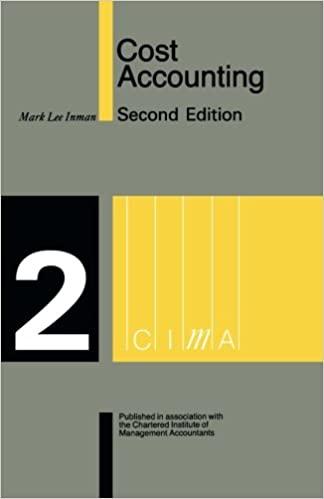Question
On January 1, 2016, Baznik Company adopted a defined benefit pension plan. At that time, Baznik awarded retroactive benefits to certain employees. These retroactive benefits
On January 1, 2016, Baznik Company adopted a defined benefit pension plan. At that time, Baznik awarded retroactive benefits to certain employees. These retroactive benefits resulted in a prior service cost of $1,290,000 on that date (which it did not fund). Baznik has six participating employees who are expected to receive the retroactive benefits. Following is a schedule that identifies the participating employees and their expected years of future service as of January 1, 2016:
| Employee | Expected Years of Future Service |
| A | 1 |
| B | 3 |
| C | 4 |
| D | 5 |
| E | 5 |
| F | 6 |
Baznik decided to amortize the prior service cost to pension expense using the years-of-future-service method. The following are the amounts of the components of Bazniks pension expense, in addition to the amortization of the prior service cost for 2016 and 2017:
| 2016 | 2017 | |
| Service cost | $386,800 | $410,683 |
| Interest cost on projected benefit obligation | 116,800 | 174,737 |
| Expected return on plan assets | 93,000 |
Baznik contributed $799,800 and $759,200 to the pension fund at the end of 2016 and 2017, respectively.
Required:
| 1. | Next Level Prepare a set of schedules for Baznik to determine (a) the amortization fraction for each year and (b) the amortization of the prior service cost. |
| 2. | Next Level Prepare all the journal entries related to Bazniks pension plan for 2016 and 2017. |
Step by Step Solution
There are 3 Steps involved in it
Step: 1

Get Instant Access to Expert-Tailored Solutions
See step-by-step solutions with expert insights and AI powered tools for academic success
Step: 2

Step: 3

Ace Your Homework with AI
Get the answers you need in no time with our AI-driven, step-by-step assistance
Get Started


